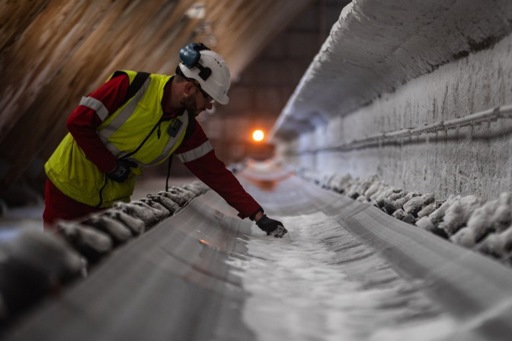Economic activity in the Eurozone contracted in August for the second month in a row, according to figures from market researcher S&P Global.
The data is further evidence that the zone is suffering from high inflation, which is putting pressure on consumers’ purchasing power. Companies are also struggling with high purchasing costs and staff shortages. Recession therefore seems increasingly likely in the 19-country bloc.
According to S&P Global, the composite Purchasing Managers Index, which looks at activity in the eurozone's manufacturing and services sectors, declined to 49.2 this month from 49.9 a month earlier. A reading of 50 or more indicates growth, below that, shrinkage.
Economists had expected a slightly larger contraction. The services sector still showed a slight growth, but the manufacturing sector again contracted.
Economic activity in Germany also shrank, once again, in August. Activity in the German services sector declined more than expected, while the contraction in manufacturing was not too bad. In July, the eurozone’s largest economy contracted for the first time this year.
During the summer months, Germany emerged as the region’s weak link due to high inflation and the uncertainties caused by the war in Ukraine.
German industry has been severely affected by rising energy costs and persistent inventory shortages. Moreover, the country’s service sector has shown much lower growth than, for example, the countries around the Mediterranean Sea, which have benefitted from increased tourism.
However, the French economy also unexpectedly contracted in August, for the first time in 18 months. French manufacturing activity shrank to its lowest level in 27 months and service-sector growth was also slower than expected.

